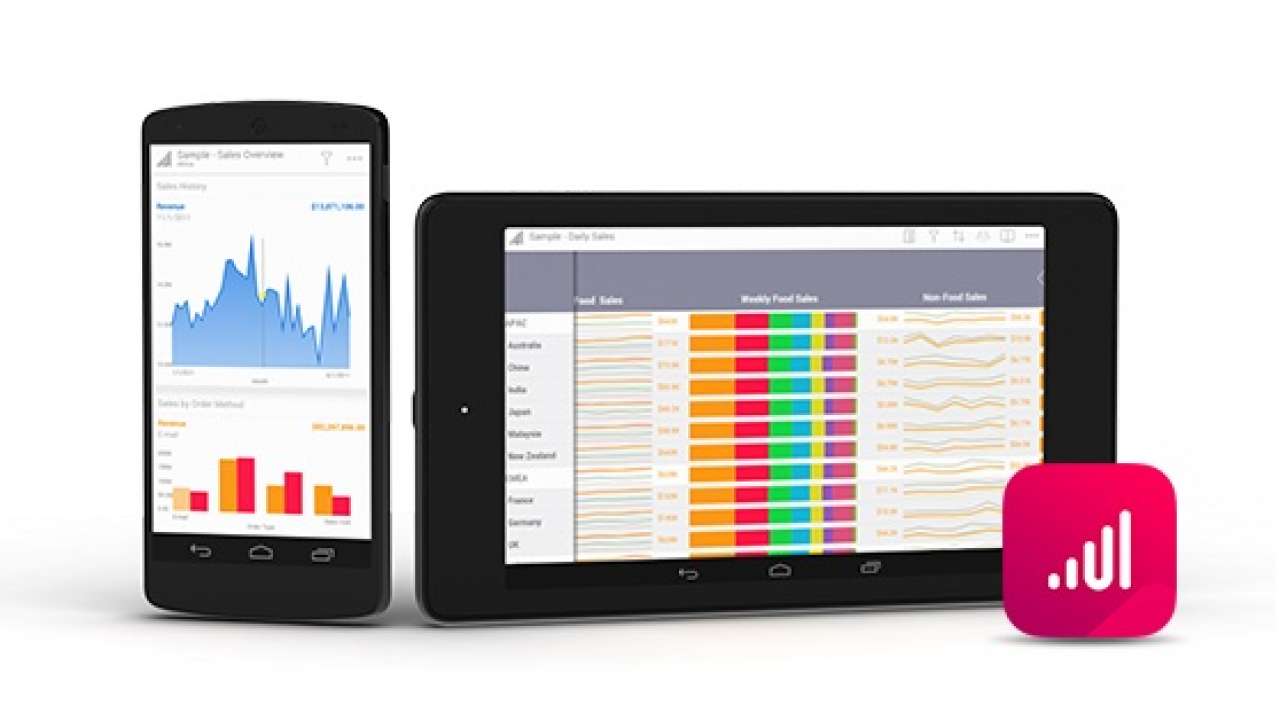Roambi Analytics Makes Its Debut on Android, Hits Google Play July 22

We don’t write about enterprise apps often, but when we have its typically been when we cover Roambi. Today, Roambi is releasing its much anticipated Android version of its business app, Roambi Analytics. The long-awaited Roambi Analytics app for Android will be available to install through the Google Play store for customers of both the Roambi Enterprise Server and Roambi Business cloud offering starting on July 22.
When I spoke with Roambi co-founder Quinton Alsbury yesterday, he emphasized the importance of the decision whether to go with a native app for Android of a web-based one. Ultimately, the company decided to go with a hybrid app that is mostly native, making it super fast just like the iOS version (which is completely native code).
The initial Android version will include four of Roambi’s most popular views, including the Card, Catalist, Layers and Superlist, as well as support for all of the platforms content management and end-to-end security features including Device Lockout, Remote Wipe, Application Passcode and more. The company will be adding support for additional visualizations, as well as the Roambi Flow publishing product, throughout the remainder of the year.
“We created Roambi because we believe that businesses of all sizes are shifting to become more mobile-centric and that there is a huge demand for enterprise applications that are designed and built from the ground up,” said Quinton Alsbury, co-founder and president of Product Innovation, Roambi.
The frameworks which Roambi designed for the Android version of its Analytics app will allow the company to adapt more quickly to other platforms if necessary. As we know, in the world of technology things move fast. Sometimes being on more than one platform can cause problems for developers when adding new features, as one version will be updated but not the other. When I asked Mr. Alsbury whether or not we should expect feature parity between the iOS and Android versions of the app, the answer was “No.” The reason he provided (inspired by Phil Libin, CEO Evernote) was simple: “We don’t want to hold back the development of the app.” So basically, this means if one developer team is ready to launch a new feature, there is no reason to wait for the other, because that causes stagnation.
Obviously, a key motivator for Roambi to release an Android version of its app is the fact that so many people use Android-based devices. And pair that with the fact that many companies have instituted BYOD (Bring Your Own Device) to work, it makes sense that Android makes up a decent percentage of mobile business devices. In addition to those reasons, the results of recent survey done by Roambi and Box also make the decision to support Android seem like a smart one.
According to the survey, 40 percent of the respondents preferred using Android for business to other devices, yet 62 percent of respondents were not aware of business apps on Android, and an additional 15 percent said there were not enough apps. What’s also interesting is that while 73 percent of salespeople bring along a smartphone to customer meetings, 32 percent still hand out a physical binder or pamphlet with sales information when presenting to prospects. To me, that shows a real opportunity for Roambi to take advantage of–one it seems they want to capitalize on as well.
You can see all the interesting data points from the survey here.